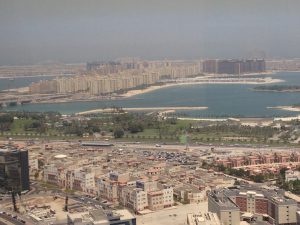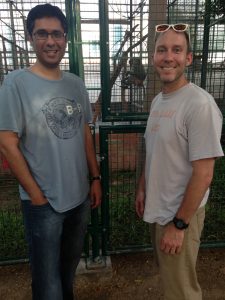10 things I learned by observing Ramadan as a non-Muslim
The 10 Things I Learned by Observing Ramadan
As a non-Muslim, I learned a lot by obsevering Ramadan. Anyone else can too.
Every year in the ninth month of the Islamic calendar, Muslims around the world celebrate the holy month of Ramadan. While it’s commonly known as a month of fasting, with devotees abstaining from food and drink between sunrise and sunset, there’s a lot more to it.
I’ve celebrated Ramadan in Dubai, Cairo, and Saudi Arabia, always by chance (rather than on purpose). But by being in these destinations during Ramadan, I learned a lot about the various facets of its significance to Muslim people and what we can all take away from it
1.The power of fasting
The benefits of fasting are widely discussed but Ramadan takes it to another level, as you aren’t able to eat during your body’s peak working period. Participating Muslims will usually have a meal just before dawn, then another after sunset, with no food or liquids (yes, no water!) passing their lips in between. Not eating or drinking for such an extended period during the day forces emotional constraint and mental calmness while your body might otherwise be lashing out in hunger.
2.The importance of eating together
When the fast is broken following sunset, family and friends will gather to eat Iftar together, something that I found to be an amazingly powerful part of Ramadan. While I was in Dubai, my friend Fahd was always planning and preparing for this special meal that would be eaten together. Knowing that I would have a good meal with friends several times per week was special for me and something that’s often overlooked as being important for our wellbeing.
3.The delight of drinking water
It’s amazing how water can regulate your emotions and bodily systems. Drinking water throughout the day was just something I took for granted. Not being able to drink during the daylight hours of Ramadan gave me a new appreciation of water and just how pure it is!
4. Purifying the mind
Aside from not eating or drinking during daylight hours, Muslim men are also encouraged to lower their gaze around women and repress their sexual urges. This is something that I thought had an extremely powerful effect, as we’re taught from a young age to look at women in an overtly sexual way. Looking away was not only relieving but also changed the way I looked at women even once Ramadan was over.
5. Cleanliness of the mouth
Muslims are also encouraged not to say bad words during Ramadan and I realized that once you take these things out of everyday life, you have a much purer mind. In Buddhism teachings, a key to happiness is having a pure mind. So stop it at the thought and don’t less it pass your lips.
6. Detox the body
As a non-Muslim, I used the month of Ramadan as a time to also abstain from drinking, the advantages of which need no explanation!
7. Living in the community
In the evenings during Ramadan, I was amazed to see people walking the streets and just hanging out. There didn’t seem to be a divide between the rich and poor, as everyone was just mingling, wishing one another a happy Ramadan and enjoying the atmosphere. The sense of community during Ramadan is something that I noticed immediately.
8. Sharing with others through charity
Another important part of Ramadan is helping others who are less fortunate, so there is a lot of sharing in the community and giving to people in the streets. I noticed a lot of places offering free food for anyone, without any questions or expectations of anything in return.
9. Praying is meditation
Pausing to pray five times a day allowed me to slow down, think and reflect – somewhat like meditation. I found this to be a really pleasant part of the day, sharing in the universal hope for peace and happiness that we all pray for, no matter our faith or beliefs.
10. Compassion and kindness
During Ramadan, you are supposed to be kinder and more compassionate to those around you, even in a business situation. I noticed a few times at meetings where people asked if I’d like help with my endeavor, “especially at this time of year”. I didn’t totally get it at the time but later understood that this was part of the Ramadan experience.
In the West, we are constantly inundated with food, sex, aggression and passion, often at levels that are detrimental to our own health and wellbeing. I found a lot of value in observing Ramadan and feel that it’s something we could all learn from or apply to our own lives.


